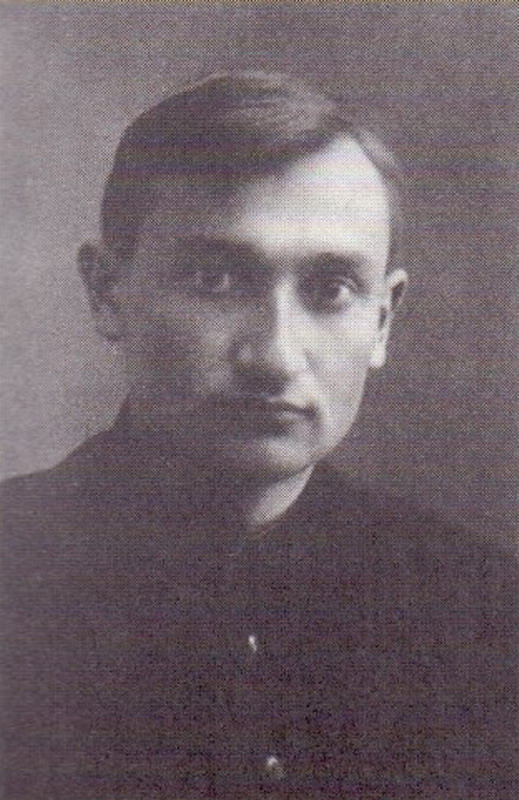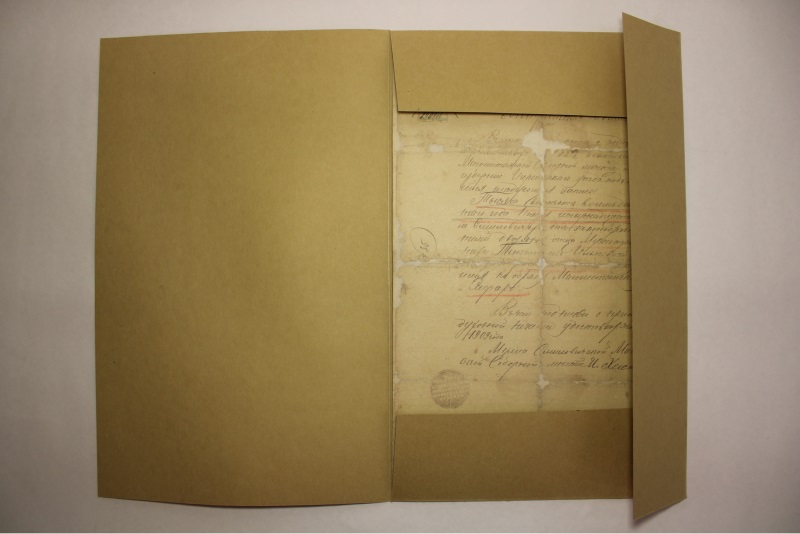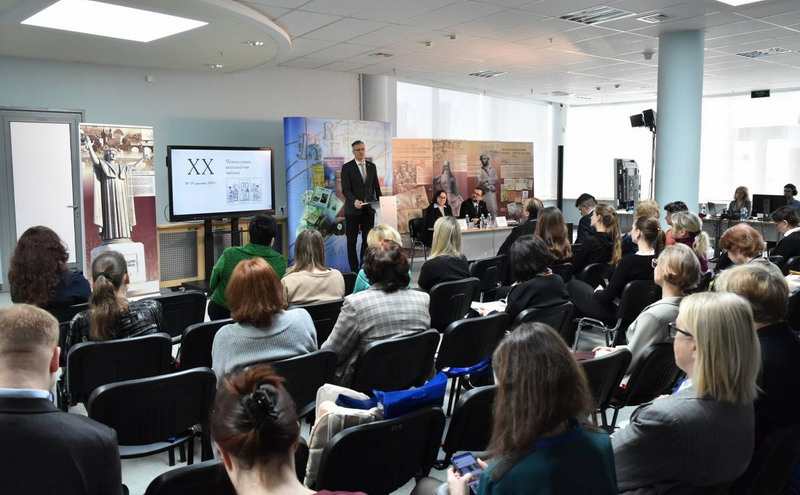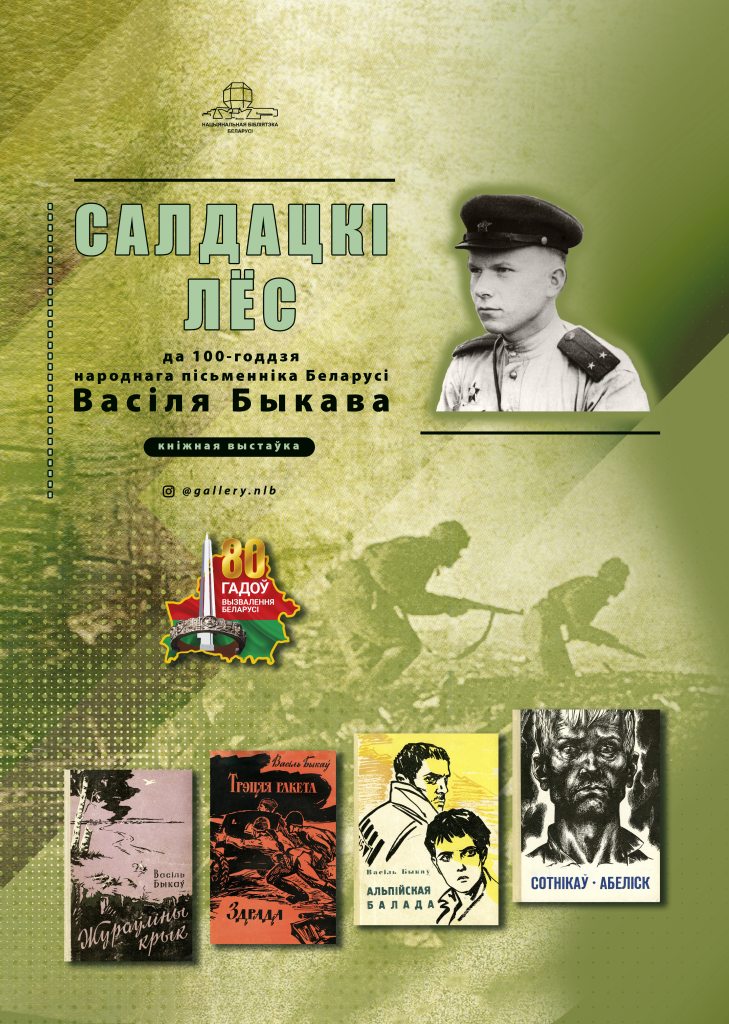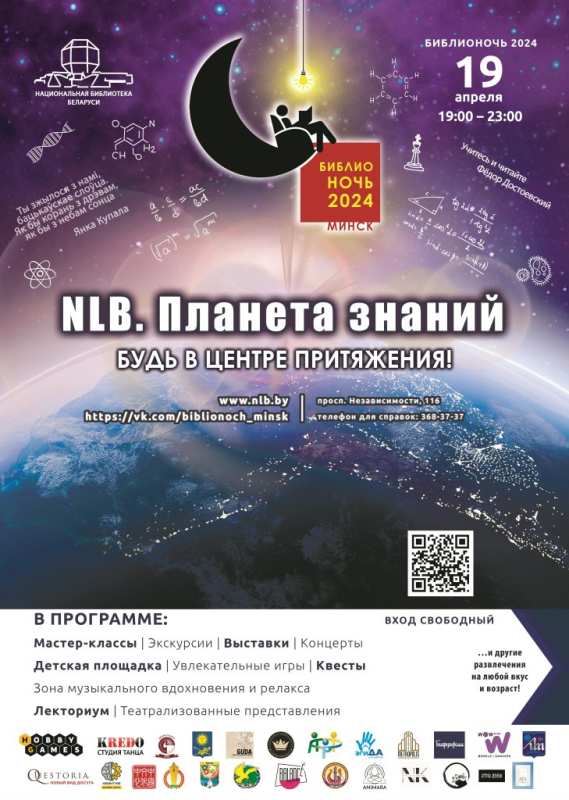The Belarusian State Library (now the National Library of Belarus) was the first place of work of the famous Belarusian historian, ethnographer and writer Mikalaj Ulashchyk. Therefore, we are twice as pleased to remember this outstanding person on the eve of his anniversary.
Unfortunately, Mr Ulashchyk's file didn't survive and we can learn about his fate and life only from archival documents and his own memoirs.
Mikalaj Ulashchyk was born on February 14, 1906 in the village of Vickaushchyna, Kojdanava district, Minsk province (now Fanipal village council, Dziarzhynsk district, Minsk region) in a large farmer's family. His father, Mikalaj Ulashchyk handed over the farm to one of his sons and sent the rest of the children to study.
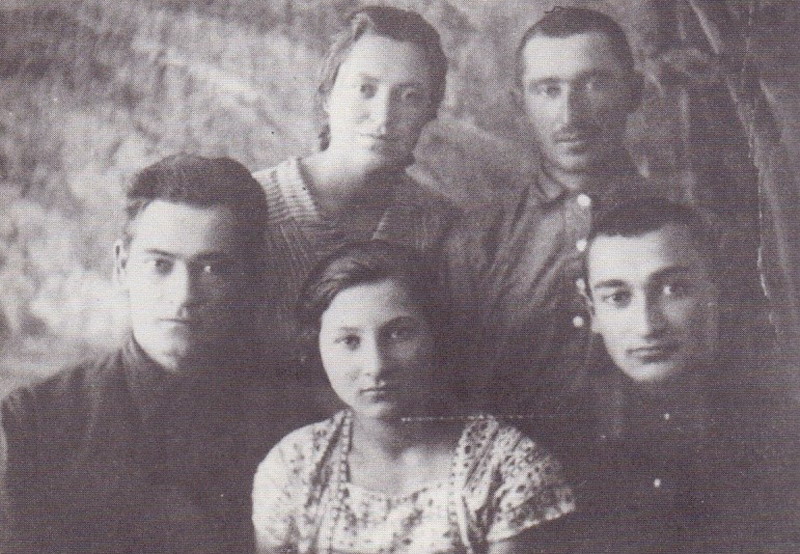
Brothers and sisters. Seating from the left: Kanstancin, Volga, Mikalaj. Standing: Nina, Paviel. 1920s
Mikalaj's education began in 1913 at a two-year school in Samachvalavichy. There he also found himself amid the First World War and the February Revolution, which he later recalled as follows: "One thing changed after the revolution: the teacher stopped beating us."
After graduating from school in 1917, Mr Ulashchyk moved to Minsk, where he entered a higher primary college, and then an evening school of the second level for adults. After graduating from it in 1924, he successfully passed the exams for the Social and History Department of the Pedagogical Faculty of the Belarusian State University, which he graduated in 1929.
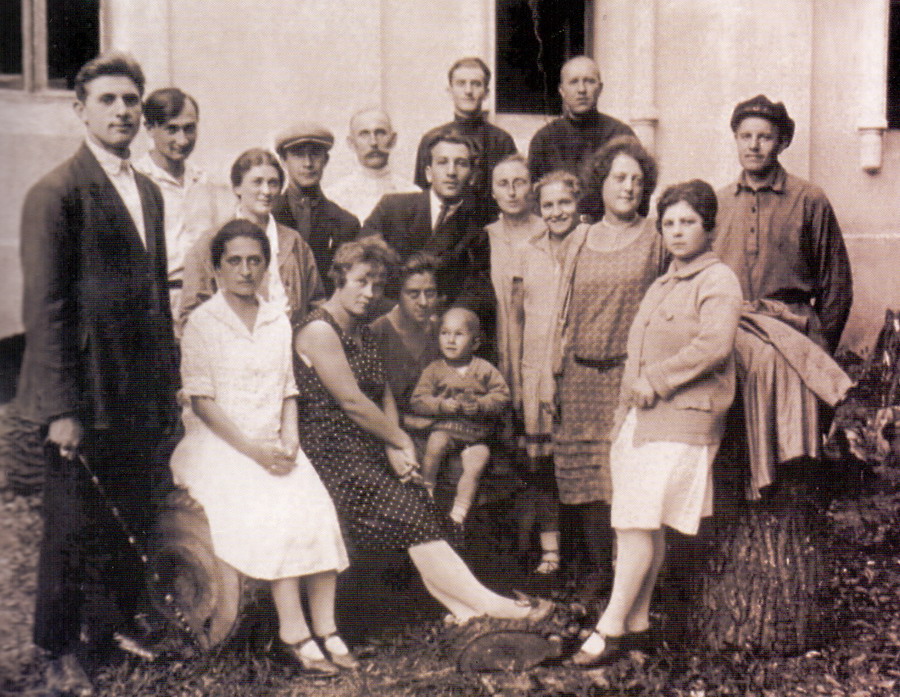
Mikalaj Ulashchyk began his career in 1924 at the State Library of BSSR. This is how he himself described this stage of his life: “In 1923, an exhibition of Belarusian books was organized in the Belarusian department. The richness of it (there were probably several dozen editions) struck me. I spent all my free time in the Department, trying to read as much as possible. I later learned that at the time when I was interested in the books, the director became interested in me. He was looking for book lovers to hire, and I seemed to be a good choice. As a result, in the spring of 1924, I began working there temporarily, and in early 1925, I joined the official staff. I worked at the Library until the early 1930s, and then for a long time I missed it like a living, very close person."
Mr Ulashchyk was appointed Secretary of the Book Chamber, which at that time was part of the Library structure. As Mikalaj Ulashchyk recalls, he "was the only employee in the Chamber."
His duty was to receive and register books, magazines, newspapers, posters and other editions published in Belarus. "In case," wrote Mr Ulashchyk, "printing houses failed to send a book, or a missed a newspaper issue, I was obliged to go and make sure that what was missed was sent urgently. Of course, my figure did not make a strong impression on the directors of printing houses and they did not really want to speak in such a "way". Then I threatened them to write to the Political Control. I still don't know what Political Control was, but then it was something serious, and unsent publications came."
Mikalaj Ulashchyk took an active part in compiling "Chronicle of the Belarusian Press." During his work at the Book Chamber, statistics of the Belarusian press were compiled for the first time. In 1929, his first source study article “Belarusian Press in 1927–1928” was published.
At the end of 1929 I. Simanowski, Director of the Belarusian State Library, offered Mr Ulashchyk to change his area of interest. This is how Mr Ulashchyk recalls it: “In the summer or autumn of 1929, Mr Simanowski told me: “Give up your history, you have no prospects there. Switch to bibliography. The tenth anniversary of the Library is approaching, we will have to publish a book by that date. ” Mr Ulashchyk later wrote: "Unfortunately, this idea (like many others) was not implemented".
One of the most dramatic pages of his life began. In June 1930, Mr Ulashchyk was arrested. For counterrevolutionary activities, he was convicted and deported for 5 years to Nalinsk, Vyatka region (now Kirov region). After that, he was arrested several more times. In total, Mr Ulashchyk spent more than 10 years of his life in camps. In 1955, Mikalaj Ulashchyk was rehabilitated.
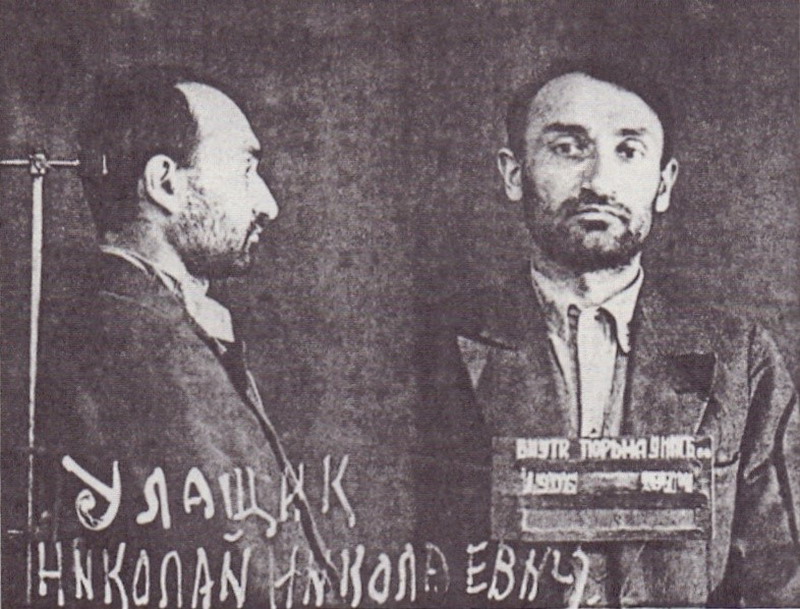
Second arrest. Prison shot. Leningrad, June 1941
Even in such gloomy times, there were some bright moments. In 1938, Mr Ulashchyk married Natalya Shamarina, an employee of the USSR Academy of Sciences, moved to Leningrad, where he passed exams for graduate school.
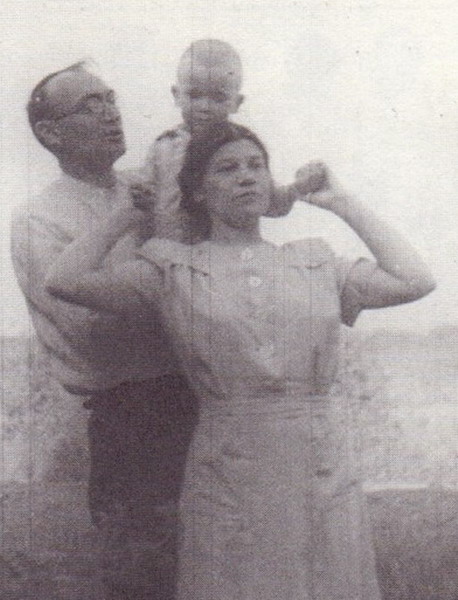
With his wife Natalya and son Aleksey, 1949
In 1944, he and his wife moved to Moscow, where he continued his studies at the Institute of History of the Academy of Sciences of the USSR (now the Institute of Russian History of the Russian Academy of Sciences) and in 1947 defended his Ph.D. thesis. He began teaching at Moscow State University and collaborated with the Institute of History, where he worked for 30 years. In 1964 he defended his doctoral dissertation on the topic "Emancipation Reform of 1861 in Lithuania and Western Belarus".
Mr Ulashchyk devoted many years of his scientific activity to the study of the Belarusian-Lithuanian chronicles. In 1966, he published The Chronicle of Bychavec, which he translated from Old Belarusian into modern Russian. For the next 10 years, he was actively involved in the preparation for publication of two volumes of the Belarusian-Lithuanian chronicles – volumes 32 and 35 in the series of the complete collection of Russian chronicles.
Another significant work by Mr Ulashchyk is "Essays on archeography and source study of the history of Belarus in the feudal period." In a historical and ethnographic essay on the history of his native village, Mr Ulashchyk gave very interesting data on the life of Belarusian farmers in the late 19th – early 20th centuries.
Throughout the "Moscow stage" of his life, Mr Ulashchyk actively corresponded with Belarusian public, political and cultural figures. He did not forget the staff of the Belarusian State Library. We know about his letters to I. Simanowski, Ju. Bibilie, N. Vatatzi.
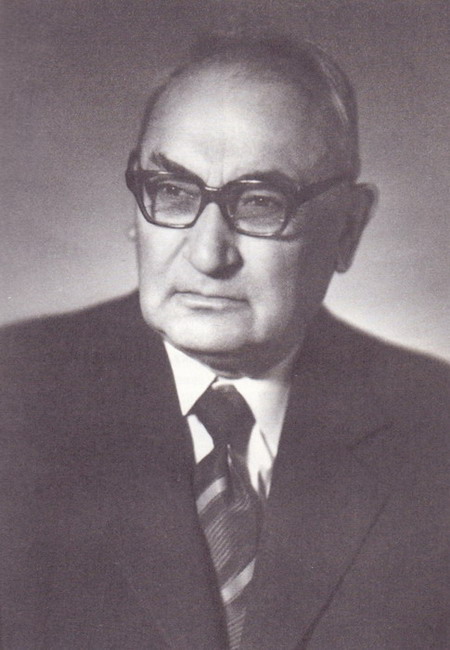
Mr Ulashchyk passed away on November 14, 1986 in Moscow. The reburial of his ashes took place on July 8, 1987 at the Chyzhouka cemetery in Minsk. On his tombstone, like a manifesto of his entire life, the Kupala line is engraved: "I have dreams about Belarus...".
Bibliology Research Department

